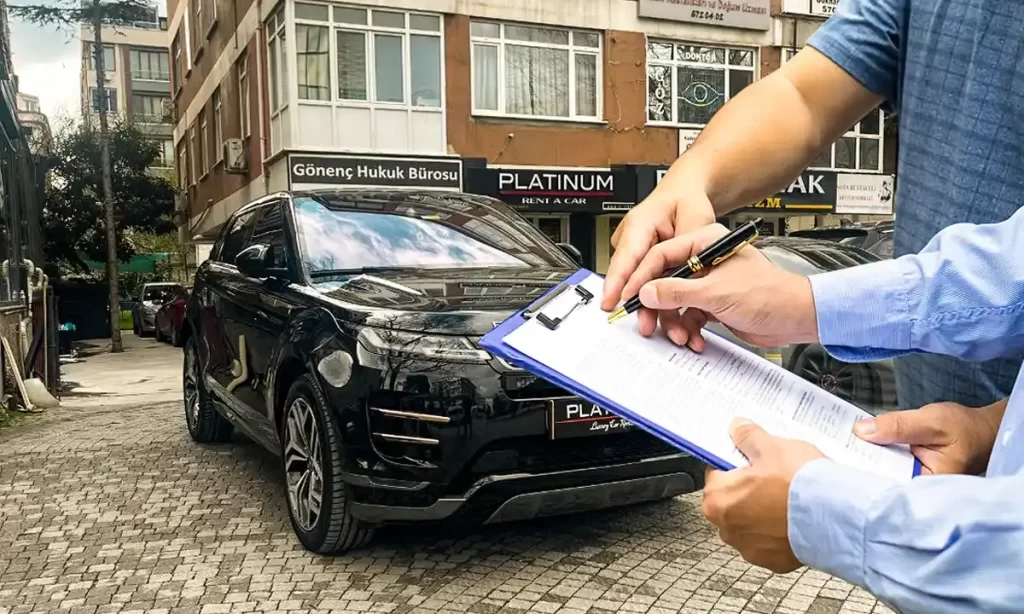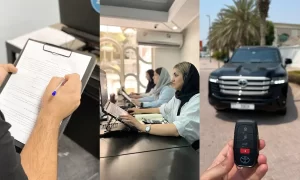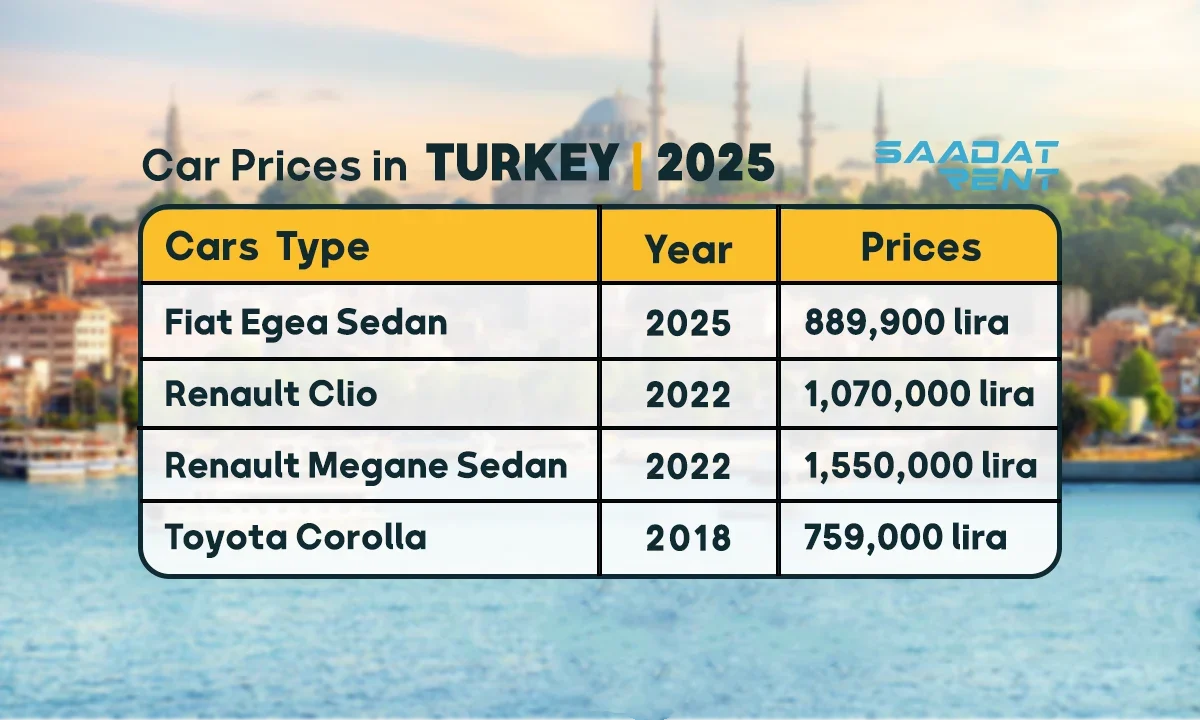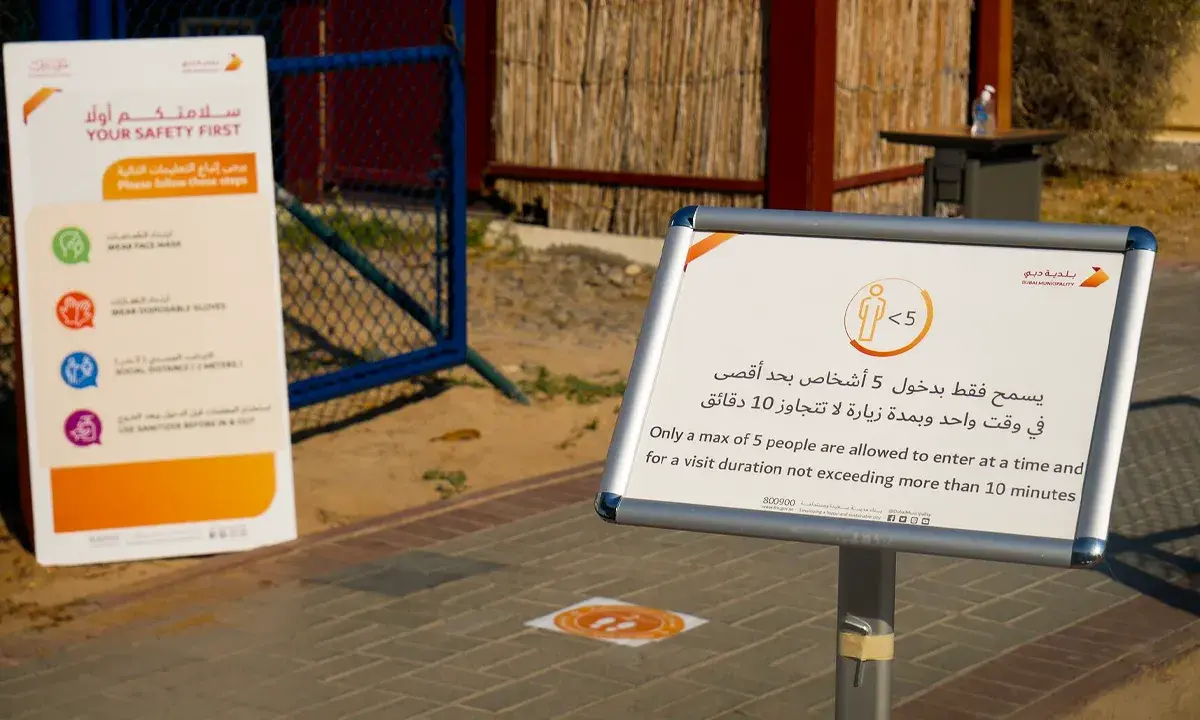Renting a car in Turkey provides a convenient way to explore the country’s rich history and stunning landscapes, but understanding the local rules is essential for a smooth experience. A valid driver’s license is required in Turkey, international licenses are accepted for tourists, and Turkish permits are necessary for residents. The minimum age for renting a car is typically 21, though this can vary by company and vehicle type, with some requiring drivers to be at least 25. A security deposit is mandatory, usually on a credit card, and renters are responsible for any traffic fines incurred during the rental period. Insurance coverage is crucial, with basic coverage often included and additional options available. Familiarizing yourself with these essential rules will help you navigate the car rental process in Turkey efficiently and legally.
Car Rental Rules in Turkey: Government Regulations
Renting a car in Turkey is a great way to explore the country’s stunning landscapes and historic sites. However, it’s essential to understand the local regulations to ensure a smooth and lawful experience. Here are the key car rental rules and government regulations you need to be aware of:
- Driver’s License Requirements
- International Drivers: Tourists can drive in Turkey using their valid national driver’s license. An International Driving Permit (IDP) is recommended but not mandatory if your license is in Latin script.
- Residents: Turkish residents must possess a valid driver’s license.
- Age Requirements
- The minimum age to rent a car in Turkey is generally 21 years old. However, some rental companies may have higher age requirements for specific vehicle categories, often requiring drivers to be at least 25.
- Drivers under 25 may incur a young driver surcharge.
- Security Deposit
A security deposit is typically required when renting a car. This deposit is usually held on the renter’s credit card and is refunded upon the safe return of the vehicle without any damage or incurred fines.
- Insurance Requirements
- Basic insurance coverage (Third Party Liability) is usually included in the rental price. This covers damages to other vehicles or injuries to other people in an accident.
- Additional insurance options, such as Collision Damage Waiver (CDW) and Theft Protection, are highly recommended for more comprehensive coverage.
- Always check what is included in your rental agreement and consider purchasing additional coverage for peace of mind.
- Traffic Rules and Fines
- Renters are responsible for adhering to all Turkish traffic laws. Common rules include driving on the right side of the road, mandatory seat belts for all passengers, and prohibitions against using mobile phones while driving without a hands-free system.
- Speed limits vary typically, 50 km/h in urban areas, 90 km/h on rural roads, and 120 km/h on highways.
- Any traffic fines incurred during the rental period are the renter’s responsibility. These fines will be charged directly to the renter or deducted from the security deposit.
- Fuel Policy
- Most car rental companies in Turkey operate a full-to-full fuel policy. This means you receive a full fuel tank and should return the car fully to avoid extra charges.
- Refuel the car at a reputable gas station before returning it.
- Additional Drivers
- Additional drivers must be registered with the car rental company and meet the same requirements as the primary driver.
- There is usually an extra fee for each additional driver.
- Border Crossing
- Crossing international borders with a rental car from Turkey is generally not allowed without prior permission from the rental company. Additional insurance and documentation may be required.
- If you plan to visit neighboring countries, check with your rental company beforehand to understand the specific requirements and restrictions.
- Documentation
- When picking up the rental car, you will need to present your driver’s license, passport, and a credit card in the driver’s name.
- Always carry these documents, along with the car rental agreement and insurance papers, while driving in Turkey.
- Emergency Contact
- In case of an emergency or breakdown, contact the rental company’s emergency number provided in the rental agreement.
- It’s also useful to know the general emergency numbers in Turkey: 112 for medical emergencies, 155 for police, and 110 for fire.
NOTE: By understanding these car rental rules and regulations, you can ensure a hassle-free and enjoyable driving experience in Turkey. Always review the specific terms and conditions of your rental agreement, as policies can vary between rental companies. Enjoy your journey and drive safely!
Standard Car Rental Regulations by Companies in Turkey
| Category | Details |
|---|---|
| Driver’s License Requirements | – International Drivers: Valid national driver’s license (IDP recommended if not in Latin script). – Residents: Valid Turkish driver’s license required. |
| Age Requirements | – Minimum Age: 21 years old. – Young Driver Surcharge: Applicable for drivers under 25; higher minimum age (25) for luxury or larger vehicles. |
| Insurance Requirements | – Basic Coverage: Includes Third Party Liability insurance. – Additional Coverage: Options include Collision Damage Waiver (CDW), Theft Protection, and Personal Accident Insurance (PAI). |
| Security Deposit | – Held on renter’s credit card. – Covers potential damages, traffic fines, and additional charges. – Refunded if car is returned in good condition. |
| Fuel Policy | – Full-to-Full: Return the car with a full tank to avoid refueling charges. – Other Policies: Some companies offer pre-purchase fuel options. |
| Traffic Laws and Fines | – Key Rules: Drive on the right, seat belts mandatory, no phone use without hands-free. – Speed Limits: 50 km/h (urban), 90 km/h (rural), 120 km/h (highways). – Renters responsible for traffic fines. |
| Additional Drivers | – Must be registered and meet same requirements as primary driver. – Additional fee usually applies. |
| Documentation Required | – Valid driver’s license, passport, and credit card. – Carry these documents, rental agreement, and insurance papers while driving. |
| Vehicle Inspection | – Inspect for pre-existing damage; ensure it’s recorded. – Take photos or video as proof. – Confirm condition upon return with a company representative. |
| Cross-Border Travel | – Generally not allowed without prior permission. – Additional insurance and documentation may be required. – Confirm specific requirements with rental company. |
| Emergency Assistance | – Rental companies provide an emergency contact number. – Know general emergency numbers: 112 (medical), 155 (police), 110 (fire). |
| Rental Extensions | – Inform the rental company in advance about any required extension of the rental contract. – If the vehicle is not returned on the due date and no extension is notified, the agreement will be renewed automatically and charges will be debited from the available credit card. |
| Vehicle Condition | – By accepting the vehicle, the renter confirms it is in the condition indicated on the Vehicle Check Report. – Renter accepts full liability for any further damage or loss. |
| Return Conditions | – Return the vehicle with all documents and accessories (spare tire, toolkit) in the same condition as received. – Must be returned at the location and on the date/time stated in the agreement. |
| Liability for Property | – Rental companies are not liable for loss or damage to property left in the vehicle. – Such property is at the renter’s own risk. |
| Repossession Rights | – The rental company reserves the right to repossess the vehicle at any time if used in violation of the agreement or if financial obligations are not settled. |
| Damage Responsibility | – The renter is fully responsible for any damage to the vehicle, especially from contaminated fuel, floodwater, sea beaches, rocky deserts, or sand dunes/off roads. |
| Accidents and Theft | – In case of an accident, personal injuries, or theft, the renter must inform the rental company and report the incident to the police to obtain a valid police report. |
| Early Termination | – Early termination of monthly contracts results in a higher rate, calculated based on the applicable rates for actual used days. |
What are the Saadat rent rules for car rental in Turkey?
- In case of an accident, renters should not move the vehicle until the police have inspected the scene. Renters must submit all necessary documents to the rental office immediately after the accident. Failure to comply will result in the renter bearing full responsibility.
- If an accident or technical issue occurs, renters must inform the rental company right away. Renters are not allowed to carry out any repairs without first notifying the rental company.
- Renters must have a valid Turkish driver’s license or an international driving permit issued within the last year. Renters under 21 years old will be liable for all damages from any accident.
- All vehicles are delivered to customers washed and cleaned. Renters must return the vehicle in the same clean condition; otherwise, a 50 TL cleaning fee will be applied if the car is returned dirty.
- Renters must park the vehicle in a safe and secure location when not in use. Renters will be responsible for any damages, including those caused by natural disasters, as these are not covered by insurance.
- The daily mileage limit for Saadatrent vehicles is 250 km. Any excess mileage will incur additional charges.
- If renters incur traffic fines exceeding 200 TL, they must pay these fines upon returning the vehicle.
- Accidents caused by the renter driving under the influence of alcohol or any other impairing substances will result in the renter being fully responsible for all vehicle damages.
- Renters agree to use the vehicle solely for its intended purpose. Rental vehicles are not to be used for motorsport events, rally racing, towing other vehicles, or transporting goods in violation of Turkish law.
To get more information about how to rent a car in Turkey from Saadatrent car rental company, visit our required documents page for car rental in Istanbul to get full information.
Last word
Renting a car in Turkey offers a convenient and flexible way to explore the country’s rich history, vibrant culture, and stunning landscapes. By understanding and adhering to the specific requirements and regulations for car rentals, both tourists and residents can ensure a smooth and hassle-free experience.
For tourists, necessary documents include an international driver’s license, passport, Turkey tourist visa, and a deposit. Residents need to provide a Turkish driver’s license, passport, residence card, or visa, and a deposit. Regardless of origin, all renters must provide personal information such as their address and contact details.
Saadatrent Turkey offers several included services to enhance your rental experience, such as a complimentary GPS, a generous daily mileage allowance, 24/7 roadside assistance, and standard insurance coverage. However, renters should be aware of their responsibilities, including maintaining the cleanliness of the vehicle, following proper procedures in case of accidents, and adhering to usage limitations.
By following these guidelines and utilizing the provided services, renters can enjoy a worry-free journey through Turkey, discovering all the beauty and adventure it has to offer. For any further assistance or inquiries, Saadatrent’s 24/7 customer service is always available to help.
FAQ
What documents are required to rent a car in Turkey for tourists and residents?
For tourists, the required documents include a copy of an international driver’s license, a passport copy, a copy of the Turkey tourist visa, and a deposit or cash guarantee amount. If the car is delivered at the airport, a plane ticket must be presented. For residents, the required documents include a copy of a Turkish driver’s license (international licenses are not approved for residents), a passport copy, a Turkey residence card or visa, and a deposit or cash guarantee amount. Additionally, the home or hotel location, room number, correct phone number, and full name must be provided.
What are the included services and insurance coverage when renting a car in Turkey?
Included services for car rental in Turkey typically consist of a complimentary GPS, a generous 150 km/day allowance, round-the-clock roadside assistance, and standard insurance coverage. The standard insurance package provides basic financial protection, with renters bearing financial responsibility for any significant damages. Coverage includes extended roadside assistance, Saadatrent Safety Commitment (SSP), and full theft protection. This insurance is usually offered at no additional daily cost. For any further questions or concerns, Saadatrent’s 24/7 customer service is available to assist renters.
What are the age and licensing requirements for renting a car in Turkey?
To rent a car in Turkey, renters must be at least 21 years old, though some rental companies may have higher age requirements depending on the type of vehicle. Renters must also possess a valid driver’s license. For tourists, an international driving permit (IDP) is required alongside their home country license. Residents must provide a valid Turkish driver’s license. The Turkish government does not accept international licenses for residents.
What are the regulations for insurance and liability when renting a car in Turkey?
In Turkey, all rental cars come with basic insurance coverage as mandated by the government. This typically includes third-party liability insurance, which covers damages to other vehicles or property in the event of an accident. Renters are responsible for any damages to the rental vehicle not covered by insurance. Additional insurance options, such as collision damage waiver (CDW) or theft protection, can be purchased to reduce the renter’s liability. It is important to carefully review the terms and conditions of the insurance coverage and understand what is included and any exclusions that may apply. Renters should also be aware that driving under the influence of alcohol or drugs voids insurance coverage and makes the renter fully liable for any damages.






















